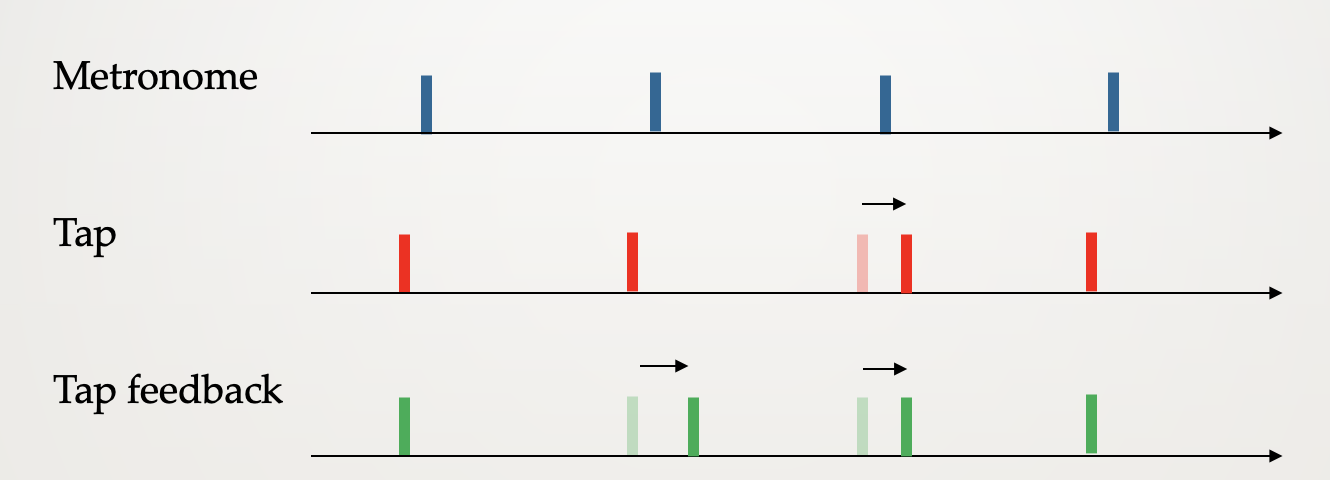Experiments are underway!

With help from some sharp, motivated undergraduates, we have started a set of experiments exploring the inner logic by which mind, action, and external processes are coordinated in time. Our working hypothesis is that covert timekeeping and action timing operate in a closed loop: our inner timekeeper is used to plan the timing for our actions, and the auditory and somatosensory feedback from event-based actions (like finger tapping) acts to partially reset our inner timekeeper. This second half of the loop was hypothesized to be part of synchronizing with a metronome as early as 1987, but it has never been effectively tested and has been largely omitted from subsequent models of action timing.
If this is how timing works, then when we synchronize event-based actions with another person, our minds are synchronizing with feedback from our own actions and with sensory information from theirs in exactly the same way. This possibility may underlie the experience of self/other integration produced by joint rhythm production in the context of music making. Our hypothesis could also have implications for our understanding of childhood-onset fluency disorder (“stuttering”), which is temporarily alleviated by manipulated speech feedback and by speaking along with rhythmic cues — the first may help to close the feedback side of the timing loop, and the second may replace feedback in resetting the internal timekeeper at appropriate moments so that it can continue to guide speech production.
We are testing this hypothesis in several ways. In one experiment, we will delay the auditory feedback from finger tapping with and without an ongoing metronome. If action feedback is resetting our inner clock, then delayed feedback should delay the subsequent tap. In a second experiment, participants make early-or-late timing judgements about short metronomic sequences both with and without concurrently tapping their finger. It has been shown that finger tapping makes these judgements more precise; however, we also predict that finger tapping, by partially resetting our inner timekeeper, will make our timing judgements more robust to irregularities in the preceding metronome.
Results to follow!